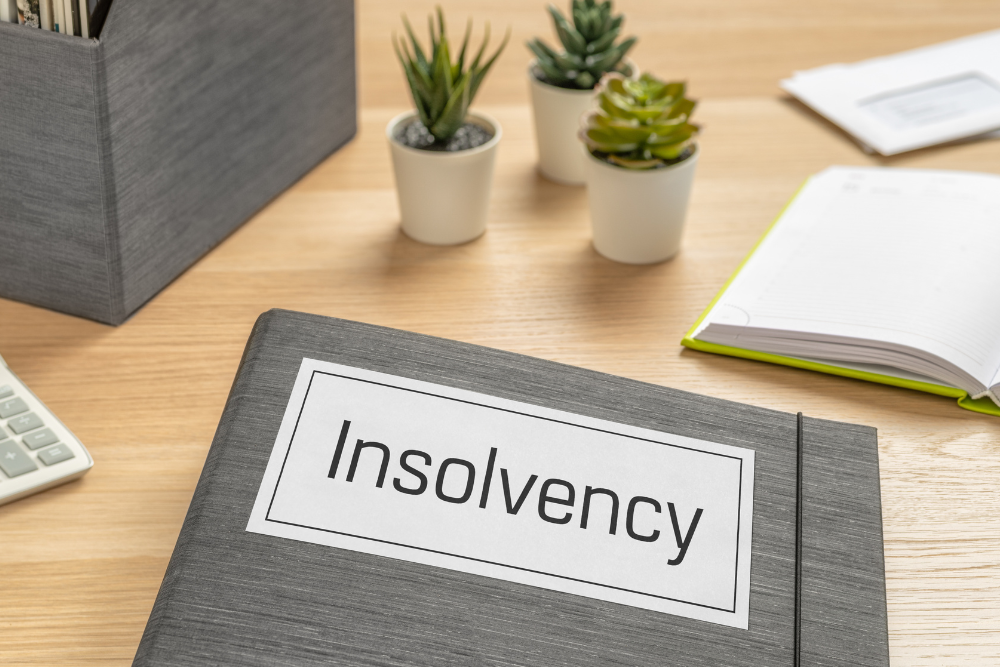What Does Insolvency Practitioner Mean?
What Does Insolvency Practitioner Mean?
Blog Article
Examine This Report about Insolvency Practitioner
Table of ContentsThe Definitive Guide to Insolvency PractitionerExcitement About Insolvency PractitionerRumored Buzz on Insolvency PractitionerThe Basic Principles Of Insolvency Practitioner Insolvency Practitioner Can Be Fun For Everyone
Whether you need to make use of a bankruptcy professional (IP) to liquidate your company relies on different aspects. While engaging an insolvency professional for all kinds of liquidation is not a legal requirement, doing so can usually simplify the procedure and make sure compliance with lawful requirements. Liquidating a business is a crucial decision that features considerable consequences.
It is a treatment used when a firm does not have any type of financial institutions, or every one of their creditors can be settled in full with legal rate of interest. Comprehending the different sorts of insolvency procedures can aid you identify the finest course of activity for your business's liquidation or other official insolvency treatments itself.
This is compulsory in order to stick to legal needs - Insolvency Practitioner. This is because IPs have the necessary credentials and experience to guarantee that the liquidation procedure is carried out based on all appropriate legislations and regulations. By engaging a licensed insolvency practitioner, you can have assurance recognizing that your business's liquidation procedure will certainly be managed expertly and in compliance with the pertinent legal needs
Insolvency Practitioner Fundamentals Explained
The bankruptcy expert is appointed as a liquidator and is accountable for taking care of the business and liquidator's financial obligations superior liabilities and possessions. This procedure includes liquidating the business's assets and dispersing the earnings to financial institutions. Upon conclusion of the procedure, the firm is gotten rid of from the register at Business Residence.
Stopping working to do so can lead to individual responsibility for the firm or director for the creditor's financial obligations. Voluntary liquidation, which consists of Creditors' Voluntary Liquidation (CVL) and Members' Volunteer Liquidation (MVL), is launched by the company's directors and investors when they can no more pay their financial obligations. In a CVL, the insolvency expert is assigned as the liquidator, in charge of taking care of firm debts and all firm possessions.

Insolvency Practitioner Fundamentals Explained
By assessing the click here for more know-how and experience of possible bankruptcy specialists, you can make certain that you pick a specialist who has the needed credentials to handle your company's liquidation process successfully. While bankruptcy practitioner-led liquidation is commonly the most ideal strategy for business dealing with bankruptcy, there are different techniques to take into consideration, such as striking off and partial liquidation.
It's vital to evaluate all available options before making a decision on the next best service or course of activity for your organization. Striking off business' registers is a more uncomplicated and economical way to shut dormant or small business without any financial obligations or properties. To strike off a firm, its name is eliminated from the Business House register by sending form DS01.
Before going with striking off, it's important to consider the advantages and drawbacks of this approach and think about whether it's the ideal choice for your business. Partial liquidation is an additional choice to insolvency practitioner-led liquidation, where a business sells off particular assets and responsibilities while proceeding to operate with the continuing to be possessions and liabilities.
A Bankruptcy Professional will have the ability to encourage you of the ideal strategy to take and ensure that every little thing runs smoothly. Sadly, it is not feasible to liquidate a company without a liquidator. Selecting an authorized insolvency specialist is necessary for the procedure of voluntary liquidation to begin.
9 Simple Techniques For Insolvency Practitioner
It is possible to shut and liquidate your business without making use of a liquidator, provided your firm is solvent Discover More and you meet the eligibility requirements to liquify or liquidate it. If your business is insolvent, you may be required to make use of a liquidator and begin official insolvency procedures. Here are some other insightful short articles relating to business liquidation in the UK:.
Remaining in a setting where you're incapable to pay your company's lenders is extremely demanding. In an attempt to stay clear of enhancing the degree of financial obligation, lots of companies try to discuss straight with their creditors and accept an informal arrangement. If the debt is rather small and owed to one financial institution, and the lender is being cooperative, becoming part of an casual financial debt setup is most likely the very best option, as opposed to browsing the web for 'an insolvency expert near me'.
On the various other hand, if there are several financial institutions and hop over to here the degree of financial obligation is large, creditors may not be so eager or participating. In order to avoid liquidation or bankruptcy, it is better to employ an insolvency professional to create formal propositions and bargain with lenders on your behalf.
Fascination About Insolvency Practitioner
Whilst it is a method to manage financial debt, there are considerable risks involved with this sort of financial debt arrangement - Insolvency Practitioner. If a creditor agrees to become part of an informal plan (IA) where the borrower has actually agreed to make normal, if reduced, repayments to settle the financial debt, it's important to stick to the arrangement
.jpg)
For that reason, the financial institution is within their legal rights to back out of the agreement and application the courts for your business to be liquidated any time. An official plan that has been recommended by an insolvency professional in your place, and agreed by a lender, supplies a much more secure option.
Report this page